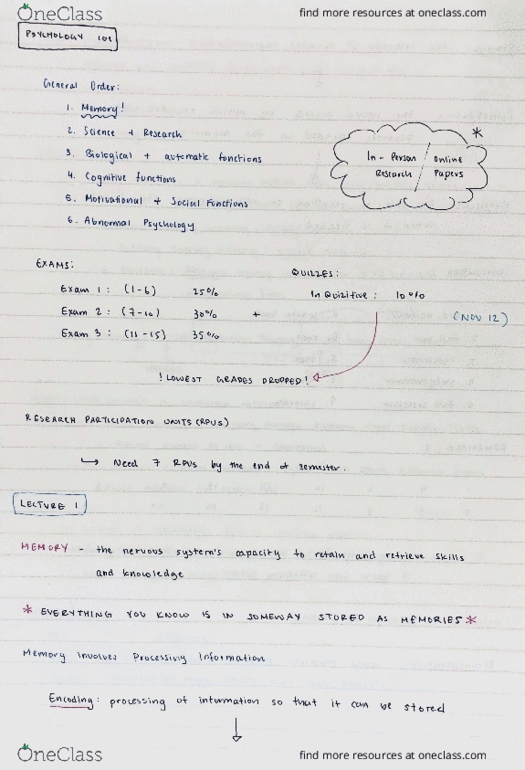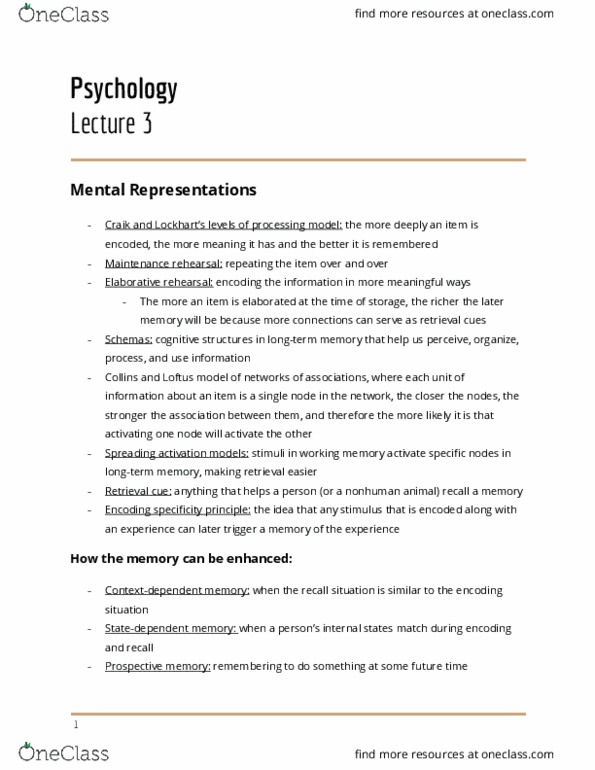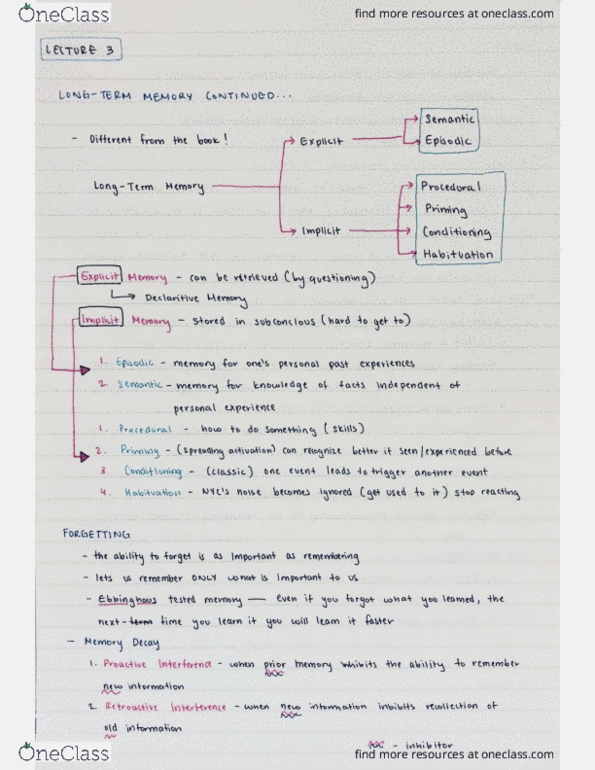01:830:101 Lecture Notes - Lecture 3: Encoding Specificity Principle, Prospective Memory, Semantic Memory
01:830:101 verified notes
3/18View all
Document Summary
Craik and lockhart"s levels of processing model: the more deeply an item is encoded, the more meaning it has and the better it is remembered. Maintenance rehearsal: repeating the item over and over. Elaborative rehearsal: encoding the information in more meaningful ways. The more an item is elaborated at the time of storage, the richer the later memory will be because more connections can serve as retrieval cues. Schemas: cognitive structures in long-term memory that help us perceive, organize, process, and use information. Spreading activation models: stimuli in working memory activate specific nodes in long-term memory, making retrieval easier. Retrieval cue: anything that helps a person (or a nonhuman animal) recall a memory. Encoding specificity principle: the idea that any stimulus that is encoded along with an experience can later trigger a memory of the experience. Context-dependent memory: when the recall situation is similar to the encoding situation. State-dependent memory: when a person"s internal states match during encoding and recall.




